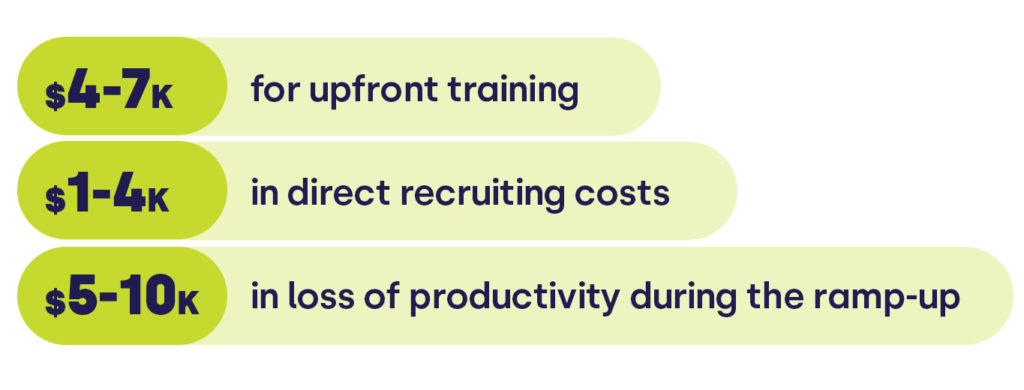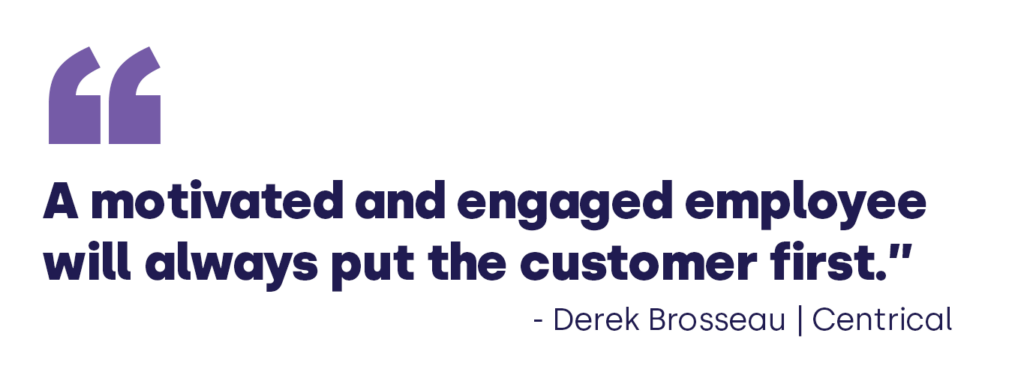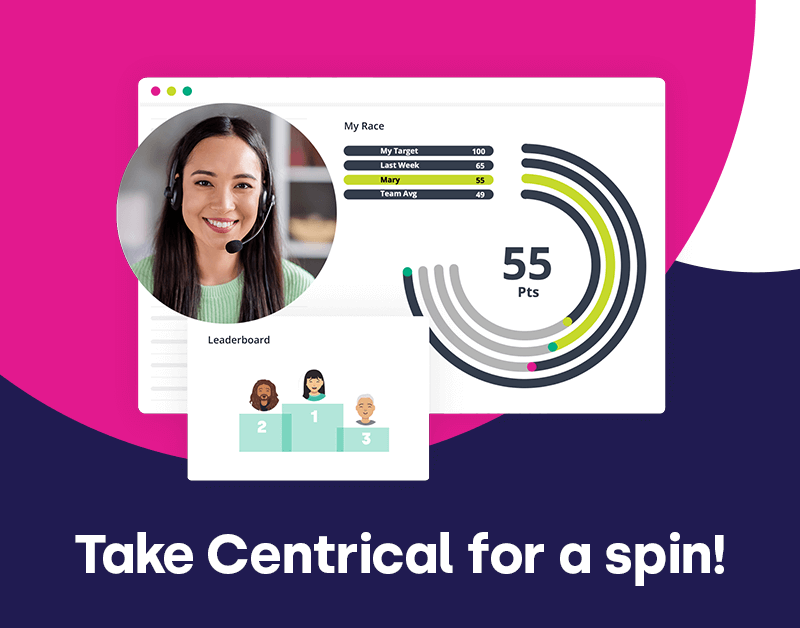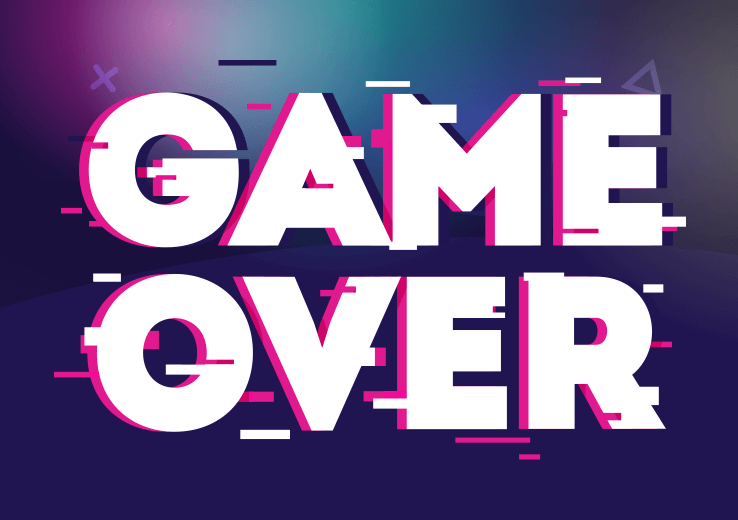To say that the travel and hospitality industry is enormous is an understatement. This industry spans the globe and encompasses airlines, hotels, rental companies of all sorts, restaurants, retail, and more, employing hundreds of thousands. While the diverse industry faces challenges unique to each sector, some pain points are universal and apply across the vertical. This includes sky high attrition rates, motivating and engaging team members, and driving the behaviors that lead to outstanding customer experience.
In this article, we’ll focus on hotel contact centers and their front-of-house, some of their most common challenges and opportunities, and how leaders can elevate the employee experience to deliver memorable customer experience and build customer lasting customer loyalty.
The Challenges (and Opportunities)
For hotels, arguably more than in any other industry, brand experience is everything when it comes to building customer loyalty and retention. And, whether it’s a local boutique hotel or a global, hotel brand, the reservations desk and front desk check-in experience sets the bar for the customer. Just one subpar experience can turn off even the most loyal customer, costing not only that customer’s future business but potentially more if they decide to leave a negative review. Here are a few common challenges in the hospitality industry that can lead to a poor customer experience – and what you can do to turn them into opportunities.
Challenge: Early attrition
Early attrition (within the first 90 days) and first-day ghosting are common issues – in fact, on average, organizations lose 12-18% of their workforce annually. But with contact centers and BPOs, that number rises to 50-60%. And the numbers for hotels are even bleaker, with an employee turnover rate of 73.8%. High turnover means a knowledge and experience gap, with a constant influx of new employees who must quickly onboard, train, and deliver on ever-rising customer expectations.
Attrition isn’t cheap. According to McKinsey, the cost of recruiting, hiring, and replacing contact center employees can run between $10,000-$20,000 per agent depending on variables such as geography, required training and expertise, agent tenure:

Why do employees ghost? Because of a lack of connection and engagement.
Let’s look at a newly hired remote reservations agent. It might take up to ten days between the date of hire and the scheduled start date for their credentials and equipment to arrive. And for a front-of-house employee, a lot can happen between the day they accept an offer and their start date. Either way, during that time, there is usually little to no communication, and no connection built with the company, its community, or its culture. As a result, the employee may accept another offer that comes in because that role pays a little more per hour, or for other reasons, such as a loss of excitement about their new role. Whatever the situation, the new hire never shows up for work, and the organization must now recruit for that role yet again – and incur additional costs.

Opportunity: Personalized pre-boarding and culture immersion
Once an employee is hired, organizations must start engaging them with the company, the culture, customer expectations, and how they can effectively deliver on those expectations. As part of this, it is critical to make the new hire feel as if they are part of a team and supportive network. The sooner the new hire is immersed in the culture, and the more engaged they are, the more meaningful their training experience will be – which means they will retain more knowledge and apply it more easily in their role.
Challenge: Effective and engaging training
Effective training is essential for hotel reservation agents and onsite staff to demonstrate the behaviors that build customer loyalty and satisfaction. But there are some unique challenges at play. The travel and hospitality industry is wrought with unpredictability – which can make ongoing training very difficult. For instance, a weather event can lead to a hotel’s 200 expected check-ins turning into 300 or more, resulting in higher demand both in the contact center and on property. On days like this, it can be extremely tough for agents to find time to train. And, with angry, unruly customers, it’s more important than ever for team members to show empathy and care – important skills many agents and front-of-house employees need to learn.
Another challenge relates to the volume of information they must retain and the forgetting curve. According to research by German psychologist Hermann Ebbinghaus, within one hour of learning, 50% of that new knowledge is forgotten. That rate plummets even further after one or two days, to 75% of what has been learned being forgotten. As new policies and procedures are introduced, it becomes very difficult for employees to remember this information.
Opportunity: Microlearning
When asked about how hotels and their contact centers can deliver microlearning on even the most unpredictable days, Centrical’s Derek Brosseau said, “Personalized microlearning, delivered in the flow of work, is crucial to help agents adjust their performance and behaviors. Reservation agents can complete learning modules in just a few minutes between calls. Front-of-house hotel staff can also complete these modules in just a few minutes during down time. By giving the agent or front desk employee the autonomy to proactively address learning and performance gaps, organizations will find they have more confident staff, and as a result, consistently deliver elevated customer experience.”
Finally, Centrical recognizes that creating training materials can be a challenge. We make it easy to create training materials quickly and at scale by leveraging generative AI with our AI Microlearning capability.

Challenge: Motivation and engagement (for the long term)
Motivating and engaging employees in any industry is essential; in hospitality this is critical. Derek offered the following, “As we know, a highly motivated and engaged employee will always put the customer first. When it comes to hospitality, this is the industry’s backbone to success. How the employees feel has a direct correlation to how the guest is treated and made to feel. Going above and beyond to create a ‘true’ guest experience is the main differentiator within the industry, and this can only happen when employees are motivated to support the brand and engaged to deliver on the brand promise.”
Opportunity: Advanced Gamification
Organizations are increasingly interested in the benefits of gamification. The application of game mechanics in a non-game context, gamification taps into intrinsic and extrinsic motivators to drive engagement and performance. this strategy has many proven benefits, including:
- Boosted employee motivation and engagement
- Higher performance
- Accelerated time to proficiency
- Higher CSAT/net promoter scores
- Increased revenue
- Reduced attrition across the employee lifecycle
- A measurable, positive impact on the company’s culture
But gamification alone won’t resolve any challenges, nor will it drive the desired behaviors over the long term. Gamification should be tied to all critical business processes, including performance management, coaching, and training and development.
Effective gamification goes well beyond the leaderboard to keep employees engaged and motivated to succeed, not just top performers. Segmented leaderboards (which give everyone an opportunity to reach the top), a progressing game narrative, gamified learning and knowledge sharing, and other elements can ensure long term benefits.
Centrical as a Partner
For over a decade, Centrical has partnered with the world’s leading brands to build motivated, engaged, and high-performing teams while reducing attrition. Centrical’s Performance eXperience platform takes a comprehensive approach to the employee experience, including elements such as AI-powered microlearning, augmented coaching, and real-time performance insights. Centrical leverages AI and advanced gamification to bring these elements together and drive long-term motivation and engagement – and in turn, an outstanding customer experience. Centrical customers have experienced solid results, including:
- 15% increase in CSAT scores
- 50% faster onboarding
- 30% reduction in early attrition
Ready to change the game for your hospitality organization? Watch the Centrical platform in action with a quick preview and request your personalized overview today.
Engage and motivate your frontline teams
Improve performance with an AI-powered digital coach
Deliver world class CX with dynamic, actionable quality evaluations
Boost performance with personalized, actionable goals
Nurture employee success with the power of AI
Listen and respond to your frontline, continuously
Drive productivity with performance-driven learning that sticks
Drive agent efficiency, deliver client results
Keep tech teams motivated and proficient on products and services while exceeding targets
Maintain compliance while building customer happiness and loyalty
Enlighten energy teams to boost engagement
Engage, develop, and retain your agents while driving better CX
Improve the employee experience for your reservations and service desk agents










 Madeleine Freind
Madeleine Freind
 Natalie Roth
Natalie Roth Linat Mart
Linat Mart












 Doron Neumann
Doron Neumann Gal Rimon
Gal Rimon Daphne Saragosti
Daphne Saragosti Ella Davidson
Ella Davidson Ariel Herman
Ariel Herman Ronen Botzer
Ronen Botzer